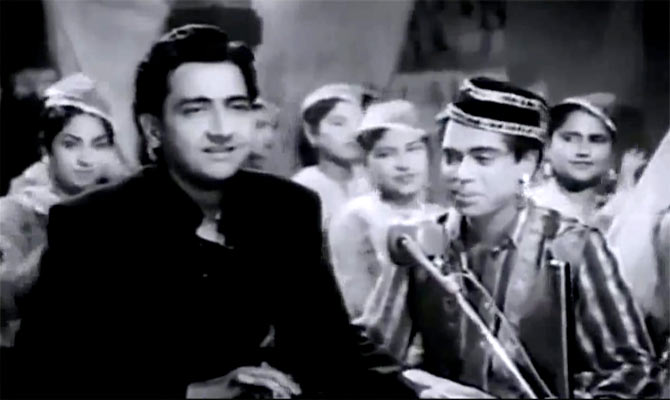


The song is a must-see for anyone interested in the genre.Īnd just to throw in the contemporary, here’s a picture of me performing the qawwali at last year’s Harvard Ghungroo! After watching Rishi Kapoor’s enthusiastic performance, you’d believe he was born to be a qawwal. Pardah Hai Pardah – Amar Akbar Anthony (1979):Ī Mohammed Rafi gem, this qawwali ranks among the best of the best. This qawwali has a unique flavor–taken from one of Manoj Kumar’s popular Indian propoganda films, the lyrics carry an interesting social message outside the realms of romantic love. OK, so sure, this qawwali is not particularly memorable for its musical ingenuity (you may or may not cringe the entire way), but how often are you going to behold Shammi and Shashi Kapoor on screen at the same time?! This fascinating qawwali is worth a watch if only for its star value! Kudos to Geeta Bali for holding her own! Mehengai Maar Gayi – Roti Kapada Aur Makaan (1974): See our translation with glossary here! Tumhe Husn Dekhe – Jab Se Tumhe Dekha Hai (1963): See our translation with glossary for more! Nigahe.N Milane Ko – Dil Hi To Hai (1963):Īsha Bhonsle’s greatest contribution to this genre, this qawwali has some beautiful Urdu and probably the most thrilling sargams you’ll find in any of her songs. Shamshad Begum battles Lata Mangeshkar for the Prince’s approval of their take on love, each lyric outwitting the last. Oh, does it get any better than this? Every moment of Mughal-e-Azam is a poetic dream and this briliant qawwali is no less. Teri Mehfil Mei.N Qismat – Mughal-e-Azam (1960):
#Old hindi qawwali full#
Filled with complex words and allusions you’ll never use in real life, “Yeh Ishq Ishq Hai” set the stage for classy performance duels between men and women that is still considered the greatest Bollywood qawwali for its poetry (see our post for a full English translation!) Sharma Ke Yeh Kyo.N – Chaudhvin Ka Chand (1960):Ī fun twist on the traditional qawwali, two women sing (Asha Bhonsle and Shamshad Begum) with the latter taking the masculine side and the former taking the feminine. This qawwali is an Urdu-lover’s paradise. Yeh Ishq Ishq Hai – Barsaat Ki Raat (1960): The music is really quite simple, but extremely catchy. One of the first qawwalis to hit the silver screen, no list is complete without this retro low-budget gem. Here are some highlights: Humen To Loot Liya – Al Hilal (1958): Let’s take a look at how this genre evolved in mainstream Bollywood into one of the most beloved musical genres of the industry. That kind of screen chemistry, as you can imagine, is prime Bollywood flirting territory just waiting to be sung. In many of its vast incarnations within Bollywood, the qawwali became synonymous with a musical debate, a verbal battle (often between the sexes) to outwit the other side on topics that usually boil down to love or the pain of love. Unlike in Hindustani classical music, while taal and raagaa usage is the same, the qawwali places a greater emphasis on the poetic text and the delivery of its message than on musical ornamentation. Rishi Kapoor dazzles his audience as a popular qawwal in the 1979 blockbuster Amar Akbar Anthony. The qawwali was a religious experience for both listener and performer: as the listener hopes for a spiritual experience of intensity and immediacy to transcend his or her conscious striving, the trained performer seeks to present in song a vast treasure of poetry that articulate and evoke a mystical experience for the audience. For centuries, Sufi communities in the Indian subcontinent have sustained this musical tradition in the mahfil-e-sama, or assembly for listening. The qawwali is the authentic Sufi spiritual song that transports the mystic toward union with God. 1326) is considered the founding father of the qawwali genre, having composed songs for the first time in this style to celebrate the death of his spiritual guide Nizamuddin Aulia. We present our list below of the best qawwalis of Bollywood films.īut let us first define what precisely is a qawwali? The great Indian poet Amir Khusrau (d. A mystic tradition more than 700 hundred years old, the qawwali gained prominence in Bollywood initially through 1950s Muslim social dramas and grew so much in popularity that its influences became mainstream–even continuing to live on today. The qawwali from films has a hallowed place in the history of the Hindi music industry. Rishi Kapoor charms his audience singing the famous qawwali “Pardah Hai Pardah” from Amar Akbar Anthony (1979).


 0 kommentar(er)
0 kommentar(er)
